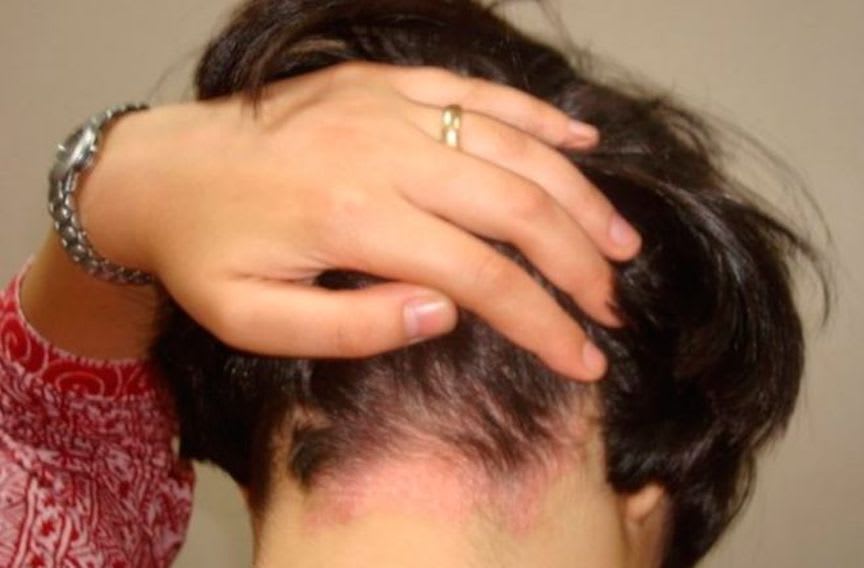Powerful Ways to Treat Psoriasis In 2021
Nearly 8 million Americans have psoriasis — and yet, no one knows what causes it. To make matters worse, there is no cure. However, there is an upside to all of this. While not curable, it is manageable, and some recent breakthroughs are very promising. It is always best to consult with a doctor before starting or ending any treatment. However, searching online can provide valuable insight into available treatment options.

What is scalp psoriasis?
Simply put, scalp psoriasis is a skin disease that causes irritation and itchness. Ranging from painful red spots to patches of itchy white scales, scalp psoriasis may cover a small area or the entire head. At times this can even extend down to the face as well. But regardless of the coverage area, scalp psorias can be difficult to live with due to the pain caused by the scratching of the scalp and head.
No one actually knows what causes scalp psoriasis, but it’s most likely linked to an autoimmune disease. This ultimately can make it harder to treat. However, there are several ways to manage it.To a person suffering from scalp psoriasis, and often times facial psoriasis as well, fighting the urge to scratch may feel impossible. Scalp and facial psoriasis flare-ups can be very uncomfortable. However, responding to the irritation disrupts the skin on the body and makes it harder to heal. Lotions and topical creams can occasionally help calm the itchy sensations. They typically work best for people who have fewer areas of psoriasis on their body. These should be applied right after bathing or showering, when skin is ready to soak up the moisture. Something with salicylic, glycolic or lactic acid can usually help prevent future outbreaks. Patients should speak with a doctor about the right brands to avoid any further irritation to the skin.
How to manage psoriasis:
1. Skin care for the face and scalp may help in resisting the urge to itch, scratch and pick.
To a person suffering from psoriasis, this may feel impossible. A psoriasis flare-up can be very uncomfortable. However, responding to the irritation disrupts the skin on the body and makes it harder to heal. Lotions and topical creams can occasionally help calm the itchy sensations. They typically work best for people who have fewer areas of psoriasis on their body. These should be applied right after bathing or showering, when skin is ready to soak up the moisture. Something with salicylic, glycolic or lactic acid can usually help prevent future outbreaks. Patients should speak with a doctor about the right brands to avoid any further irritation to the skin.
2. Keep the air around the home or office moist.
Speaking of moisture, using a humidifier can help with scalp psoriasis. When the air is dry, a person's skin is also most likely to be dry — so keeping some moisture and humidity in the air can help avoid outbreak-triggering dryness.
3. Eat Healthy
Eating healthier can be one of the easiest ways to mitigate the symptoms of scalp psoriasis. In general people suffering from scalp psoriasis should avoid certain foods that can lead to inflammation. Inflammation and the bodies immune system response can lead to flareups.
Foods to Avoid:
- Red Meat
- Eggs
- Wheat and Wheat Derivatives
- Processed Foods high in Sugar, Salt & Fat
- Highshades (Tomatoes, Potatoes etc)
Foods to Incorporate into a healthy diet:
- Broccoli, Cauliflower, and Brussels Sprouts
- Berries, including blueberries, strawberries, and raspberries
- Fatty Fish including Salmon, Trout, Cod
- Heart Healthy Oils including Olive and Coconut
Its always recommended to speak with a physician or nutritionist on how a proper diet can help control psoriasis conditions.
4. Catch some rays.
Yes, really. Sunlight is actually a proven treatment for scalp psoriasis. Try to soak up some natural sunlight around two to three times a week. The ultraviolet light can help heal lesions and slow the growth of bad skin cells. Just make sure to wear sunscreen before stepping out into the sun, and talk to a doctor about whether this is the right treatement approach.
5. Lose the vices.
Smoking and drinking can actually make scalp psoriasis worse — in fact, 1 in every 5 cases of scalp psoriasis has been linked to smoking cigarettes. The poisonous chemicals in nicotine and alcohol can trigger psoriasis flare-ups, too.
6. Do the research.
The good news is there’s still a lot to be learned about scalp psoriasis. Because there’s still so much we don’t know about the condition, there’s a lot of room for experimental treatments that may, one day, be regarded as a cure. Right now, there are several cutting-edge biologic medications that are being used to treat scalp psoriasis with some success. These medications can help reduce inflammation and irritation alike. There are many pharmautical options that are definitely worth researching . A person with scalp psoriasis should not feel discouraged by available options — instead, they should feel inspired by them. Do the research on these new biologic medications and talk to a doctor about how they could help with psoriasis.
Citations:
Health.com. (2014, July 3.) 21 Tips and Tricks for Treating Psoriasis. https://health.com/health/gallery/0,,20764718,00.html
Ericson, Cathie and Krans, Brian. (2019, February 14.) 10 Ways to Treat Psoriasis at Home. https://healthline.com/health/psoriasis/treat-symptoms-home
https://www.healthline.com/health/psoriasis/food-triggers-for-psoriasis#takeaway
